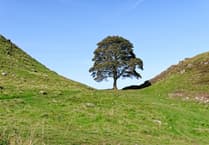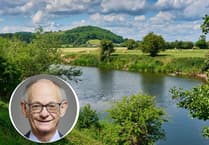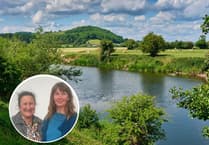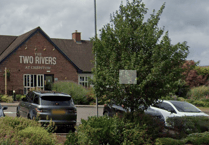A TOWN primary school has been praised by inspectors for making good use of the River Wye in its learning.
Dell Primary beside Chepstow Castle, which cates for nearly 400 pupils aged four to 11, is described as “an inclusive school where the well-being of its pupils is a priority”, in a new report.
Inspectors add: “The school’s curriculum is broad and balanced and provision for pupils’ personal and social development is effective.
“Teachers provide a wide range of activities that engage the interest of nearly all pupils.
“Good use is made of the local environment such as when pupils study the River Wye and the area around Chepstow.”
They note that youngsters show “a sense of justice and care for their local environment and use their voice positively to promote issues that they care about”, such as writing to their local MP to share their concerns about pollution in the River Wye.
Pupils in Year 2 also look carefully at pictures of Wye Bridge and produce detailed observational drawings which they then paint using water colours.
“Many pupils capture the tones of the stone bridge well and the different shades of the river flowing below,” says the report.
The school is praised over how it handled and emerged from the pandemic, with governors “highly supportive” in helping the school “manage and deploy its resources effectively”.
“The acting headteacher and senior leaders have worked hard and effectively managed change following the pandemic and the absence of the substantive headteacher,” say inspectors.
Senior leaders are instrumental “in creating and maintaining a very positive ethos” across the school community.
Pupils also develop their communication skills to a “high level”, with younger children willingly sharing ideas and listening carefully to adults and their classmates, while older pupils listened to arguments and ideas presented by their peers and added their opinions, displaying mature thinking.
The report says most children read “fluently and comprehensively” by Year 6, and most in reception “make very good progress in developing their early writing skills”.
Nearly all pupils also build their mathematical and numerical skills well as they move through the school.
But the report notes: “Although pupils develop key knowledge, skills and understanding during their focused teaching sessions, they do not apply these skills well enough or at a high enough level across the curriculum.
“This is particularly evident during many ‘My Time’ sessions where literacy and numeracy skills are not applied well enough.”
Pupils also lack “confidence in using spoken Welsh” and progress in developing their Welsh language skills is “generally too slow”.
It further says that the school’s work in preparation for the implementation of a Curriculum for Wales is at an early stage in development.
But it adds: “Nearly all pupils take great pride in their school and feel secure within its inclusive ethos.
“They are polite and treat their peers, staff, and visitors with respect. Nearly all pupils are very caring towards each other.”
The school will now have to draw up an action plan to deal with four recommendations in the report.
They are to: Ensure that pupils have opportunities to consistently apply their skills in literacy and numeracy at a high enough level across the curriculum; Improve pupils’ Welsh language skills; Improve the quality and consistency of teaching across the school; Strengthen leaders’ capacity to evaluate and improve the school particularly in relation to teaching, learning and national priorities.





Comments
This article has no comments yet. Be the first to leave a comment.